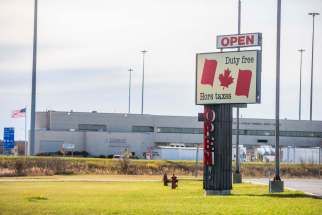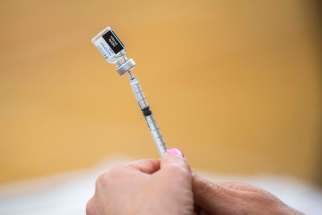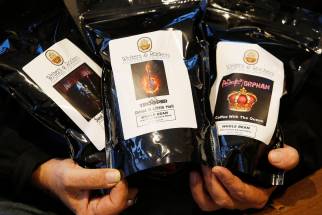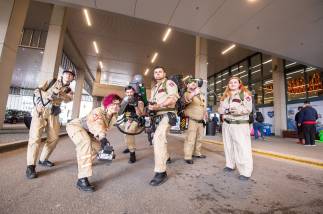Short-term trip changes alter cross-border checklist
Read this article for free:
or
Already have an account? Log in here »
To continue reading, please subscribe:
Monthly Digital Subscription
$0 for the first 4 weeks*
- Enjoy unlimited reading on winnipegfreepress.com
- Read the E-Edition, our digital replica newspaper
- Access News Break, our award-winning app
- Play interactive puzzles
*No charge for 4 weeks then price increases to the regular rate of $19.00 plus GST every four weeks. Offer available to new and qualified returning subscribers only. Cancel any time.
Monthly Digital Subscription
$4.75/week*
- Enjoy unlimited reading on winnipegfreepress.com
- Read the E-Edition, our digital replica newspaper
- Access News Break, our award-winning app
- Play interactive puzzles
*Billed as $19 plus GST every four weeks. Cancel any time.
To continue reading, please subscribe:
Add Free Press access to your Brandon Sun subscription for only an additional
$1 for the first 4 weeks*
*Your next subscription payment will increase by $1.00 and you will be charged $16.99 plus GST for four weeks. After four weeks, your payment will increase to $23.99 plus GST every four weeks.
Read unlimited articles for free today:
or
Already have an account? Log in here »
Hey there, time traveller!
This article was published 19/11/2021 (1481 days ago), so information in it may no longer be current.
Ottawa has slightly loosened its COVID-19 border protocols. Here’s what you need to know before making travel plans:
What do I need to go to the U.S., or another country, for a short trip?
As of Nov. 30, Canada will not require a molecular coronavirus test for vaccinated citizens returning home after 72 hours or less abroad.
Critics pan Canada's 'piecemeal' travel-test plan
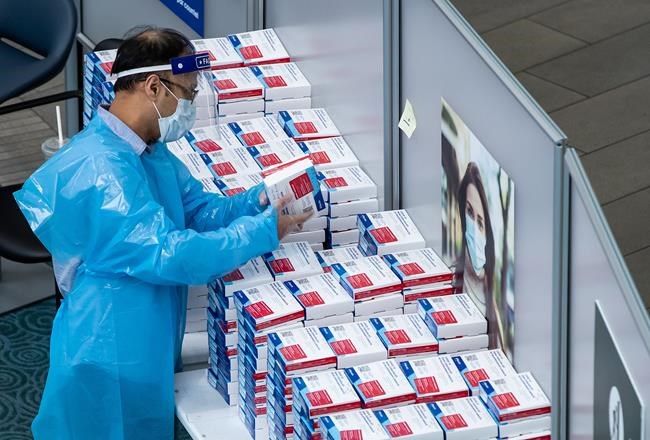
Posted:
WASHINGTON - Ottawa is effectively installing "one-way" signs along the road to the Canada-U.S. border, critics complained Friday as the federal government promised to stop requiring costly COVID-19 tests to enter the country — but only for Canadian citizens and permanent residents returning from short-term visits.
American officials don’t require you to provide a COVID-19 test to cross into the U.S. at a land entry or port. But to enter the U.S. by air, you’ll have to take an antigen or molecular test within three days of boarding a plane. That timeline can be beyond 72 hours — a Tuesday morning test works for a Friday afternoon flight to the U.S.
Regardless of where you’re going, you’ll need to bring your proof of vaccination.
The enhanced code Manitoba rolled out a month ago is a safer bet than the documentation officials issued this spring. The plastic Manitoba Immunization Card does not work at the Canadian border, but the updated QR code in the Manitoba app should work. It’s an even better idea to print out a copy of the enhanced proof of vaccination.
Before embarking on your trip home, you’ll have to upload your proof of vaccination into the ArriveCAN app, which the Canada Border Services Agency uses to speed up the screening process.
Unvaccinated children also don’t need to take these tests if travelling with vaccinated parents on short trips.
What if I’m abroad for longer than 72 hours?
You will need a molecular test to get back into Canada, taken within 72 hours of reaching the border by car or 72 hours before the departure time of a flight bound for Canada.

You can’t use an antigen test to get back to Canada; you’ll need proof of a negative result from a more expensive molecular test such as NAAT or PCR.
Some American pharmacies are offering PCR tests to Canadians for free, as is Grand Forks Health Department in North Dakota — but some of those options take two to three days to provide an emailed result, so check you have the results within the required timeline.
If you’re not fully vaccinated, you need to quarantine upon returning to Canada, regardless of how long you were abroad.
What about my children?
Unvaccinated children under 12 years old will follow the same rules as an accompanying parent or tutor, if they were outside Canada for less than 72 hours.
Unvaccinated children who were abroad for more than three days will be largely stuck at home for two weeks. They technically aren’t under quarantine, as they can still leave the house — but for two weeks, they’re not allowed to go to school, daycare, camp, a stadium or on “crowded” public transit, according to a Friday news release.
What’s the loophole?
There is no religious exemption for the border rules; you need a doctor or nurse-practitioner to sign an attestation that you have “medical contraindications” against the vaccine. Unlike domestic rail and air travel, there is no exception for what Ottawa deems “sincere religious beliefs.”
How do officials know how long I’ve been abroad?
Canada has access to some American border records, to verify when you left Canada and returned. It’s possible an airline would bar you from boarding a flight if you’re abroad for more than 72 hours and don’t have proof of a recent negative test.
You can face large fines or even jail time if you’re caught lying to a border officer or breaking the Quarantine Act.
What if my COVID-19 test comes back positive?
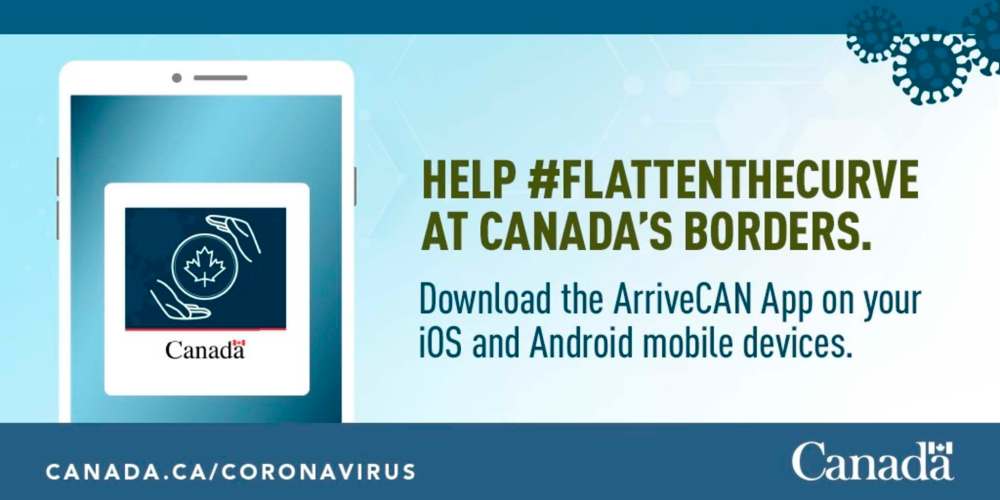
As a Canadian citizen, you have a right to enter the country, but you could face strict Quarantine Act rules, including being sent to a designated hotel. You will need to show officials a detailed quarantine plan, including how you will avoid interaction with other people and how you’ll manage to get food without visiting a grocery store.
Make sure you note the positive test result in your ArriveCAN app before you reach the border, as it will tell officials to help you navigate the rules.
Can foreign relatives and family members come visit now?
As of Nov. 30, Canada will allow entry to visitors vaccinated with shots not available in Canada but approved by the World Health Organization. That includes Chinese-made vaccines such as Sinopharm and Sinovac, as well as the India-made vaccine Covaxin.
What else can I expect?
A long wait at the border when coming home.
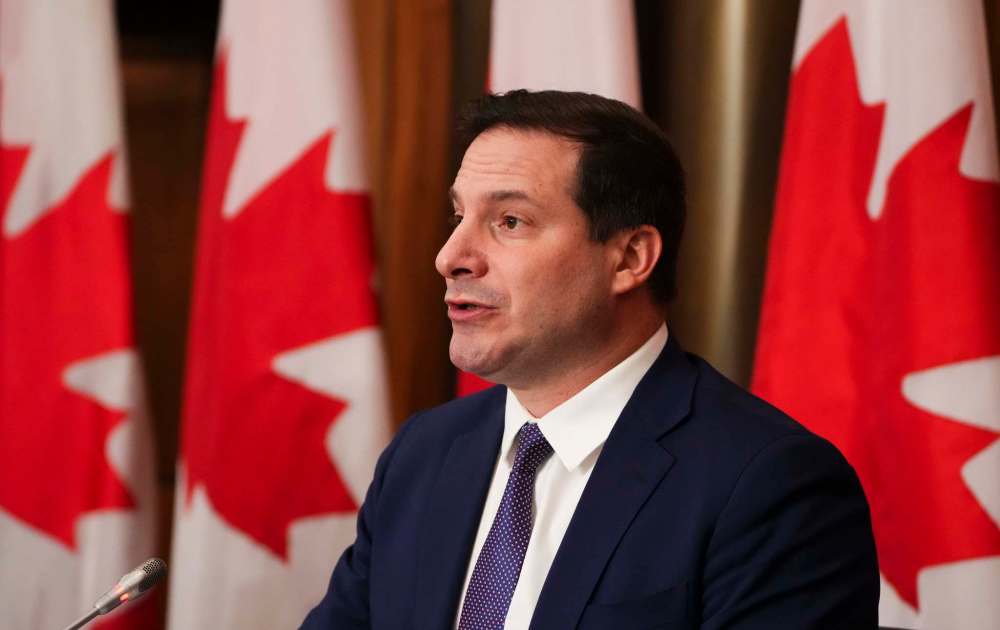
“Due to the changes that we’re announcing today, some travellers may experience delays,” Public Safety Minister Marco Mendicino told reporters Friday, saying he puts safety ahead of speed.
“I thus ask travellers to co-operate, and to be patient.”
Meanwhile, vaccination exceptions for various groups of foreigners will end Jan. 15, 2022, meaning athletes, truck drivers, students and family relatives will no longer be able to enter Canada with just a negative test. The exemption will apply to a smaller number of people, including refugees, temporary farm workers and certain children.
Wasn’t Ottawa told to scrap the test requirement?
In May, a scientific panel commissioned by the government suggested scrapping the molecular-test requirement entirely.
Dr. Theresa Tam, Canada’s chief public health officer, noted Friday vaccinated people are drastically less likely to get severely ill from COVID-19. However, she said since that May guidance, it’s become clear vaccinated people can still get infected and spread the coronavirus to others.
“We are taking a cautious, phased approach to lifting layers of border measures. We are definitely not out of the woods; the pandemic is very much alive all over the world.” – Dr. Theresa Tam, Canada’s chief public health officer
“The vaccines are not perfect,” Tam said, adding a molecular test taken 72 hours before travel will indicate about 70 per cent of people who are infected at that point.
That’s part of why only Canadian citizens get to skip a test for returning to Canada — and not Americans or permanent residents, Tam said.
“We are taking a cautious, phased approach to lifting layers of border measures. We are definitely not out of the woods; the pandemic is very much alive all over the world.”
dylan.robertson@freepress.mb.ca


